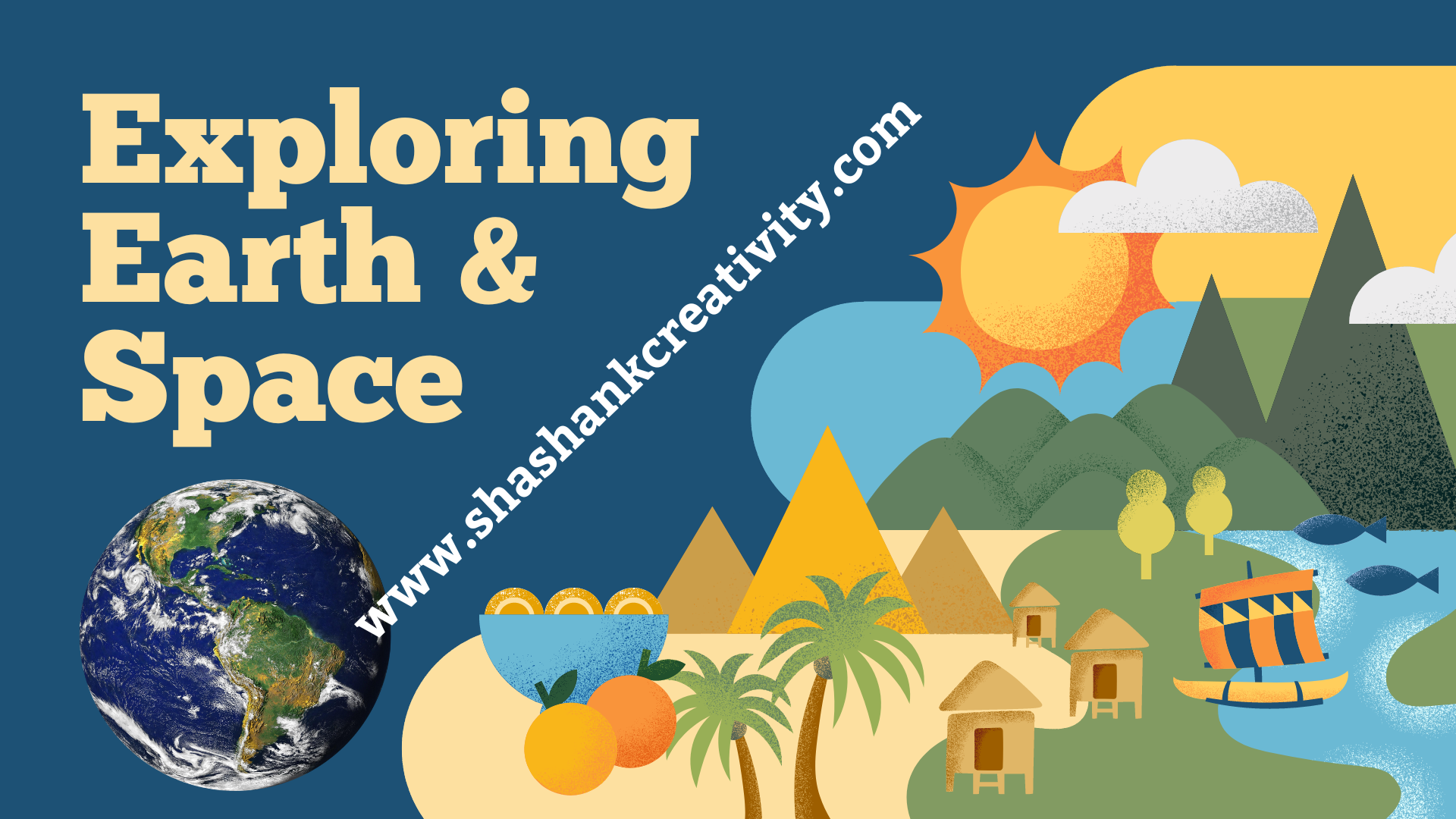Discover the unexpected with Shashank Creativity unknown fact revelations. Unravel fascinating secrets and expand your knowledge with every click. Knowledge truly is power with our unique take on the mysterious unknown." #unknownfact #shashankcreativity #knowledgeispower #mystery #secretsrevealed
Certainly! Here are 20 interesting facts about the early Earth:
-
The Earth formed about 4.6 billion years ago from a cloud of gas and dust called the solar nebula.
-
The early Earth was a hot, molten ball of rock, with no atmosphere or oceans.
-
As the Earth cooled, a solid crust formed on its surface, made up of igneous rocks such as basalt and granite.
-
The early Earth was bombarded by asteroids and comets, which helped to shape its surface and deliver water and organic molecules.
-
The first life on Earth likely appeared around 3.5 billion years ago in the form of simple, single-celled organisms.
-
The early atmosphere of the Earth was mostly composed of carbon dioxide, water vapor, and nitrogen, with very little oxygen.
-
The first continents began to form around 3 billion years ago as the Earth's crust cooled and solidified.
-
The Earth's magnetic field formed around 4 billion years ago and protects the planet from harmful solar radiation.
-
The early Earth had a much shorter day than it does now, possibly as short as 6 hours.
-
The Moon was formed around 4.5 billion years ago when a Mars-sized object collided with the early Earth.
-
The early Earth was much warmer than it is today, with average temperatures around 100 degrees Celsius.
-
The first photosynthetic organisms evolved around 2.5 billion years ago and began to produce oxygen, which eventually led to the formation of the ozone layer.
-
The Earth's first supercontinent, called Vaalbara, formed around 3.6 billion years ago and eventually broke apart into smaller continents.
-
The early oceans on Earth were likely acidic due to the high levels of carbon dioxide in the atmosphere.
-
The early Earth had a much higher concentration of volcanic activity than it does today, which helped to shape its surface and release gases into the atmosphere.
-
The early Earth had a weaker gravitational pull than it does now, which allowed some of the lighter gases in its atmosphere to escape into space.
-
The Earth's first ice age occurred around 2.3 billion years ago, when the planet's surface was covered in ice for millions of years.
-
The first multicellular organisms evolved around 1 billion years ago, leading to the diversification of life on Earth.
-
The early Earth was home to many different types of organisms, including stromatolites, algae, and cyanobacteria.
-
The geological record of the early Earth is preserved in rocks and fossils, which give scientists clues about the planet's history and evolution.
Unknown fact, Unknown facts about indian history, Unknown facts about earth, Unknown science facts, Interesting unknown facts, Unknown amazing facts, Unknown facts about taj mahal, Unknown facts about water, Some unknown facts, Unknown facts about human body, Unknown facts in telugu, True unknown facts, Unknown facts about mahabharata, Unknown facts about space, Unknown facts about world in hindi, Unknown facts in telugu pdf, Unknown facts about animals, Unknown facts about mahatma gandhi, Unknown facts about ramayana, Unknown facts about universe, Unknown facts in tamil, 30 unknown facts in telugu, Mahabharat unknown facts, Unknown facts about cricket, Unknown facts about independence day, Unknown facts hindi, Unknown facts logo, Bts unknown facts, Unknown facts about gandhi, Unknown facts about india in hindi, Harry potter unknown facts, Most unknown facts, Psychology unknown facts, Some unknown facts about india, Unknown facts about apj abdul kalam, Unknown facts about computer, Unknown facts about independence day of india, Unknown facts about krishna, Unknown facts about life, Unknown facts about maths, Unknown facts about solar system, Unknown facts in english, Unknown history facts, Unknown maths facts, Unknown psychological facts, 10 unknown facts, 40 unknown facts about america, Bangladesh unknown facts, Interesting and unknown facts, Random unknown facts, Shraddha kapoor unknown facts, Unknown facts about adolf hitler, Unknown facts about albert einstein, Unknown facts about bats, Unknown facts about black holes, Unknown facts about bollywood actresses, Unknown facts about cat, Unknown facts about dubai, Unknown facts about game of thrones, Unknown facts about gandhi ji, Unknown facts about hitler, Unknown facts about human, Unknown facts about indian flag, Unknown facts about kedarnath, Unknown facts about lal bahadur shastri death, Unknown facts about microsoft, Unknown facts about polar bears, Unknown facts about republic day, Unknown facts about shirdi sai baba, Unknown facts about tamil nadu in tamil, Unknown facts about valentine's day, Unknown facts about west bengal, Unknown facts telugu, Unknown real facts, Amazing and unknown facts, Ancient unknown facts, English unknown facts, Friends tv show unknown facts, Karnataka unknown facts, Liver unknown facts, Neha kakkar unknown facts, Some unknown facts about space, Unknown fact about, Unknown facts about bible in telugu, Unknown facts about chandrayaan 2, Unknown facts about donald trump, Unknown facts about earth in hindi, Unknown facts about facebook, Unknown facts about history, Unknown facts about indian independence struggle, Unknown facts about indian railways, Unknown facts about iron man, Unknown facts about mother teresa, Unknown facts about mount everest, Unknown facts about naruto, Unknown facts about plants, Unknown facts about sita, Unknown facts about spirituality, Unknown facts about swami vivekananda,
